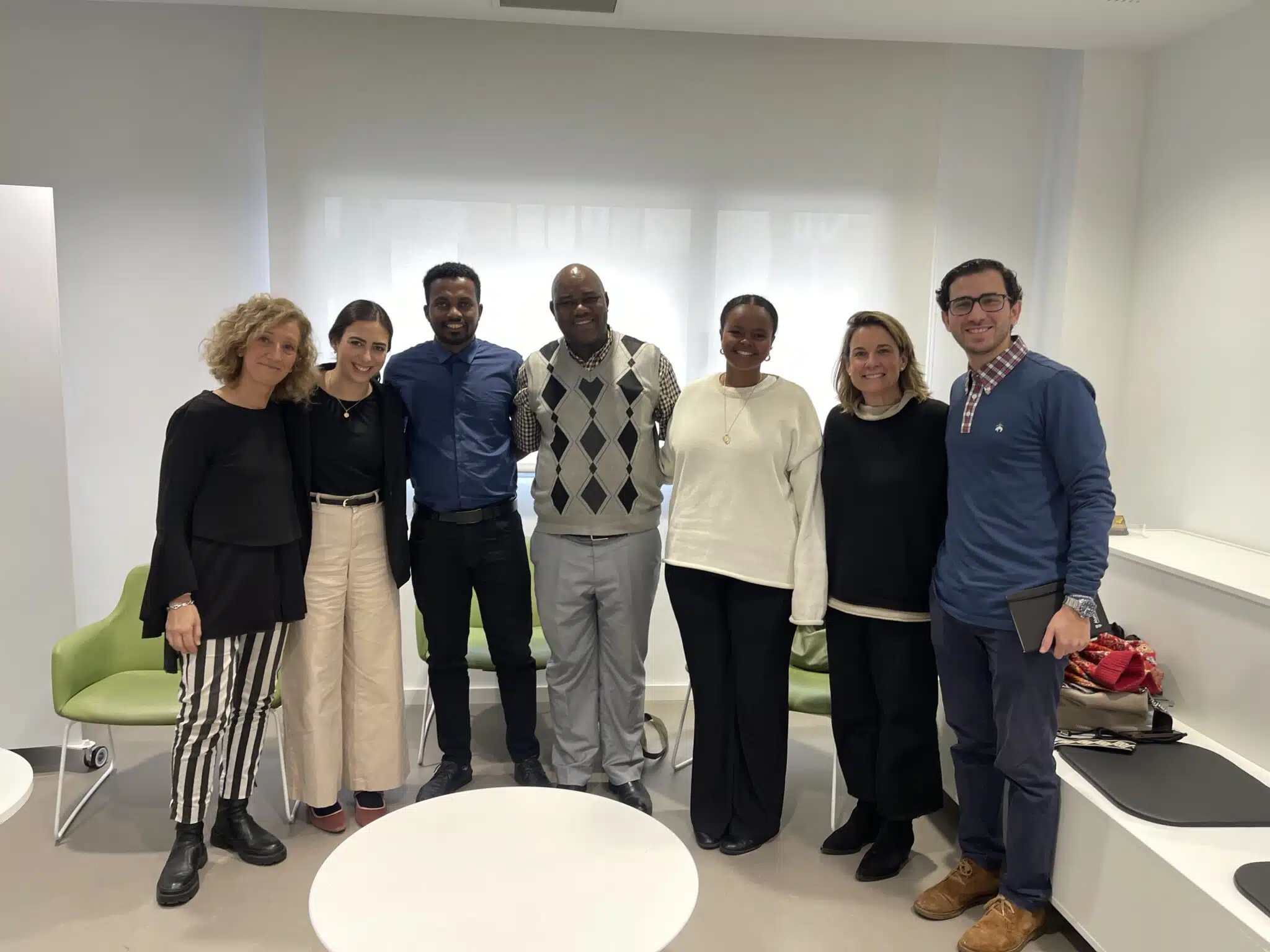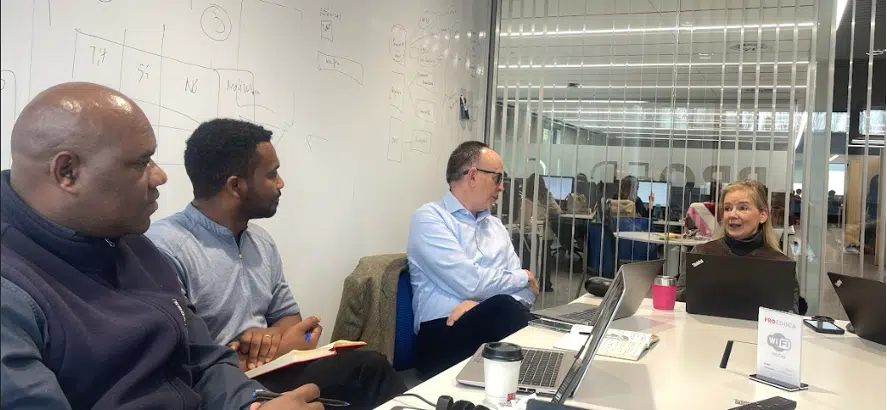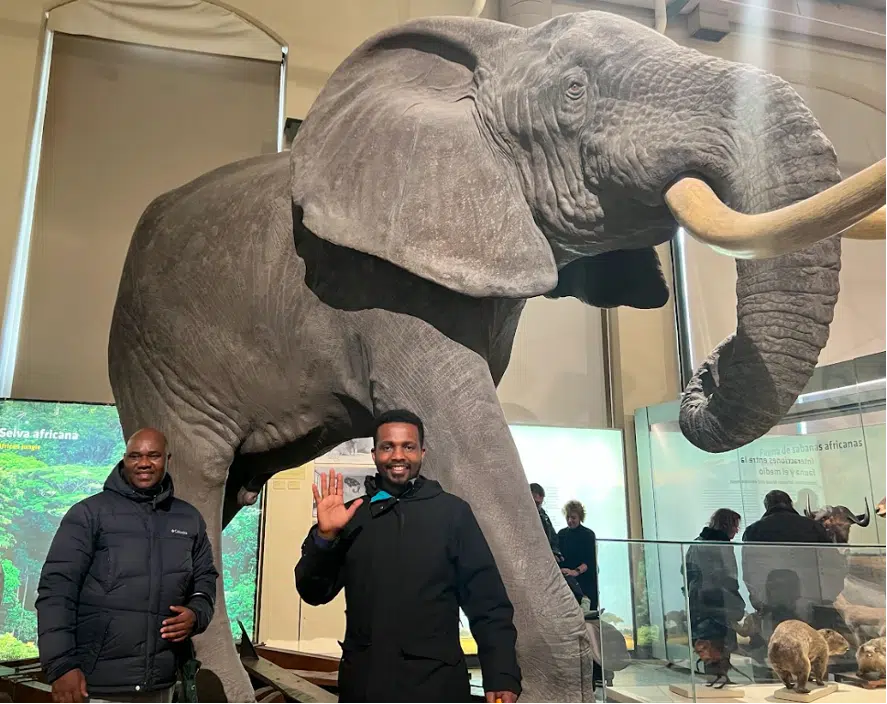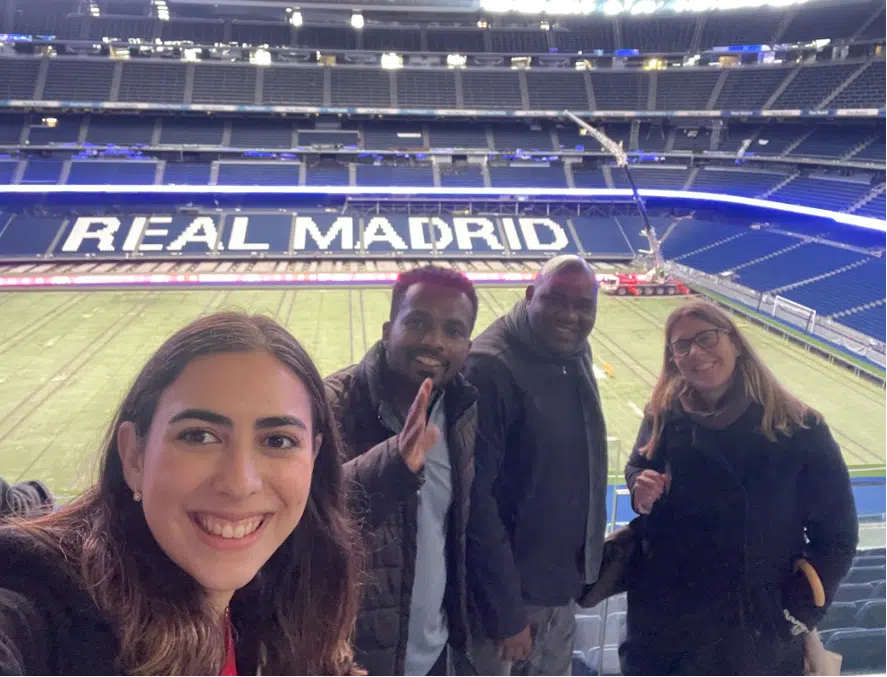Just a few days ago, at Fundación Parentes, we witnessed the power of a grateful heart. We received a visit that left a profound mark on each one of us: Vicar Tsegaye Beriso and Education Coordinator Elias Dakamo, from Hawassa, Ethiopia, arrived in Spain with a moving humility, yet with the strength of those who face adversity with a deep sense of mission.
I must admit that, upon hearing of their arrival, I assumed they came in search of support and learning. But as the days went by, I realised that we were the ones learning from them: from their dignity, their inexhaustible gratitude, and their ability to rise above hardship with unwavering hope.
Education as a lifeline in vulnerable communities
I picture a modest classroom in Hawassa, full of children whose only school supplies are their enthusiasm to learn. There, education is not just a right—it is a lifeline. It is the only viable path to breaking the chains of poverty that seem unbreakable.
Tsegaye and Elias told us about the precarious state of their rural schools: run-down buildings, no drinking water, a lack of basic resources, and teachers whose salaries have had to be tripled by government mandate—leaving no funds for school materials or sanitation.
The funds from Caritas Austria, which were once used to improve infrastructure or purchase school supplies, now barely cover those salaries. The prospect of renovating a classroom or drilling a well has been pushed into an uncertain future.
Talking about water and education may sound odd from the comfort of our cities. But in Hawassa, these two basic needs stand side by side as essential pillars of human dignity.
An encounter that transformed us all
The visit of Tsegaye and Elias went far beyond any institutional formality. It was a deeply human experience that forced us to look directly at realities we often prefer to keep at a distance.
What moved us most was their constant gratitude. Every gesture, however small, was received with overwhelming appreciation: from the meals we shared to the cultural visits and the training they eagerly embraced.
One of those cultural visits was to the Prado Museum. We walked through the galleries in silence, but when we reached the Flemish panels and scenes of sacred art, something in them paused. Tsegaye, contemplating a section of a Bosch painting, whispered: “This is the whole story of man.” Nothing else needed to be said. Sometimes, art doesn’t illustrate—it reveals. And his gaze, suspended between wonder and contemplation, spoke more than any speech.
On the final day, Elias tried to express his gratitude, but no words came. Tears took their place. The emotion of that moment—so sincere, so human—left us all speechless. That instant reflected everything their visit had meant to us.
I understood that they were teaching us more than any course or book ever could. Their visit gifted us a new and valuable perspective—one that compelled us to look beyond our comfort and truly grasp the meaning of educational vocation.
Gratitude in the face of comfortable indifference
This experience led me to reflect on our own reality. We live in societies where wellbeing is taken for granted, where dissatisfaction and unrest arise from trivial problems. While in Hawassa they face the lack of basic needs, we often lose sight of the blessing that is our abundance.
Tsegaye and Elias do not know resignation. Their hope does not come from comfort, but from the open air. It is not naïve but cultivated—like a seed that knows blooming is resistance. Watching them speak with humility and enthusiasm about their training plans and how to implement what they learned in their schools was as powerful a lesson as any educational theory.
Here in the West, surrounded by comforts, we too easily forget that genuine gratitude cannot be bought. We often mistake it for an entitlement. But Tsegaye and Elias, in their apparent fragility, showed us that true strength lies in recognising every small achievement with sincere thankfulness.
From the bottom of our hearts—Thank you, Tsegaye and Elias
I cannot end this article without expressing my heartfelt thanks to Tsegaye Beriso and Elias Dakamo. Thank you for crossing half the world to share your reality and wisdom with us. Thank you for showing us through your example that education, when nurtured with love and perseverance, can transform lives and communities.
Your dignity, your gratitude and your hope remain with us at Fundación Parentes. You have reminded us why we do what we do—not to tick boxes, but to uphold, through tangible action, the dignity of those who still have everything to build.
María Asunción Rey Ballesteros, Character Education Specialist and Programme Director at Fundación Parentes



